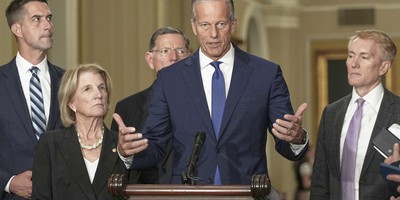M.A.D. stood for Mutually Assured Destruction. It was the idea that prevented human being from destroying the planet during the Cold War – if you nuke us, we’ll nuke you and we all die. It may sound crazy now, especially to people not alive at the time, but it worked. The same philosophy applies to many things on the world stage, but none more than tariffs.
Let me just state at the start that tariffs are an important tool to punish bad actors on the world stage. While sanctions are useful to go after and punish bad (and frankly evil) individuals and countries – Iran, for example, has all manner of sanctions on it and many individuals in Russia do too – tariffs are useful against enemies and allies a like. They don’t target individuals, they impose fees or taxes (take your pick, which side of it you’re on determines which word you use) on commodities people buy to either punish a foreign company or country or protect an industry domestically.
That’s the dime store explanation, anyway. In reality, they’re tools for politicians to be seen as doing something about whatever outrage occurs at any moment. I know I’m cynical, but sometimes cynicism and reality do intersect.
Last week, President Trump raised tariffs on aluminum and steel imports to the delight of the American steel companies. Adding 25 percent to the cost of building materials from overseas will make American building materials cheaper by comparison, if not cheaper in reality.
But thing is, we live in reality. Making everything else cost more does not make what remains cost lost, it just makes everything else cost more. While I don’t have a need for building anything at the moment that requires building materials, I couldn’t help but notice that a couple of our states are in need of such things.
Large parts of South Carolina were swept away by floods and a lot of Los Angeles burned to the ground. Those places need to be rebuilt and, honestly, using a much metal as possible to do it would probably be a better long-term strategy than wood, as it is stronger and less likely to, um, burn. Even if those rebuilding would like to use wood, making alternatives more expensive would not be helpful.
Recommended
I’m no economist, but I do understand market forces. If you artificially make something more expensive – i.e. cost prohibitive – money will flow other places, meaning to less expensive alternatives. That increases demand for the less expensive alternative, which drives up prices of that.
Again, I don’t have a dog in this hunt, but I know that there are tens of thousands of Americans desperate to get their lives back on track and rebuild their homes. Since they are in this position unexpectedly, the demand they bring is on top of the existing, normal demand, which drives up prices.
The hope is that we have strong enough domestic suppliers to meet this demand which thanks to the economic policies over the last two decades it does not look like we do. Interestingly enough, U.S. Steel, which is currently in the process of being acquired by the Japanese company Nippon Steel, is in favor of these tariffs. However, the positive impact the tariffs will have on U.S. Steel and other domestic suppliers will not come close to the billions of dollars of investment that the Biden administration attempted to block in the final hours of his presidency.
I do find it a little odd, maybe even amusing, how the idea of a Japanese steel company, Nippon, buying US Steel – which was ready to invest billions in expanding production capacity and modernizing factories – was unacceptable to so many, including the leadership of the steelworker’s union, but is happy to have the billions of investment dollars of foreign money in other industries. Japan, as it turns out, is the second largest investor in the United States, just behind the Netherlands. Not sure why building here is OK – like all the Toyota factories politicians of both parties regularly cheer – but buying and expanding is not.
President Trump is right to try and negotiate for better trade deals and investments for U.S. companies and he has done so with much success in the past. I’m of the belief that jobs are jobs, and anything that creates more of them, or keeps the ones we already have, is a good thing. I’m old fashioned that way.
Derek Hunter is the host of a free daily podcast (subscribe!) and author of the book, Outrage, INC., which exposes how liberals use fear and hatred to manipulate the masses, and host of the weekly “Week in F*cking Review” podcast where the news is spoken about the way it deserves to be. Follow him on Twitter at @DerekAHunter.

























Join the conversation as a VIP Member